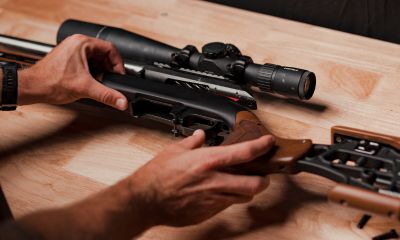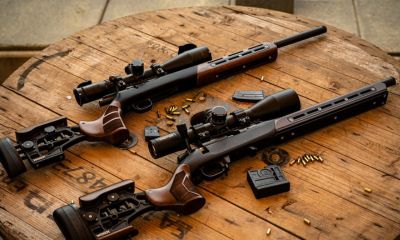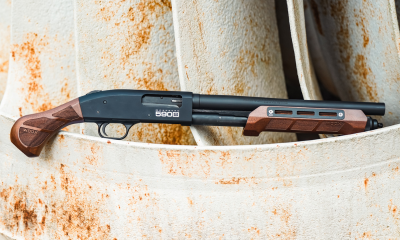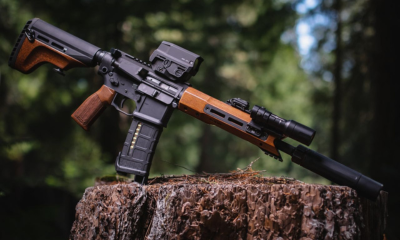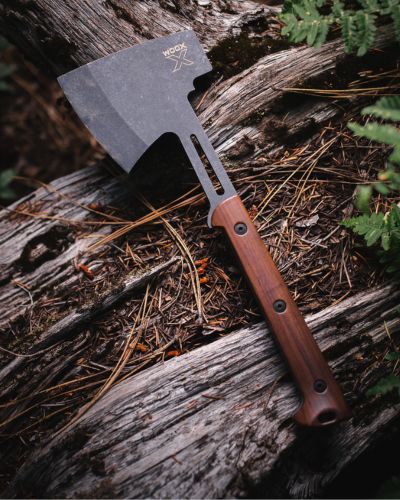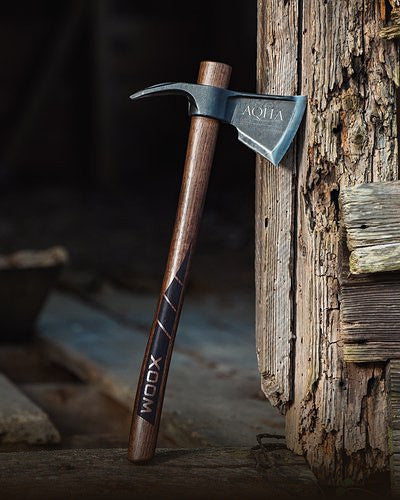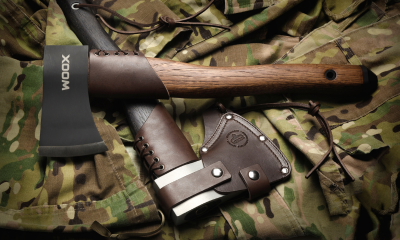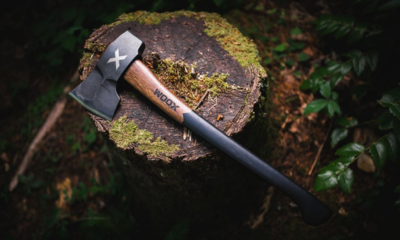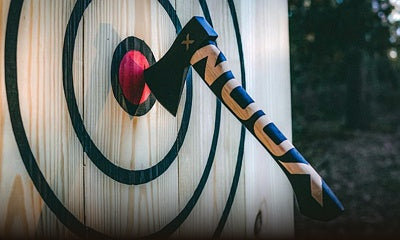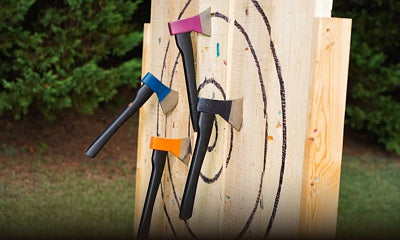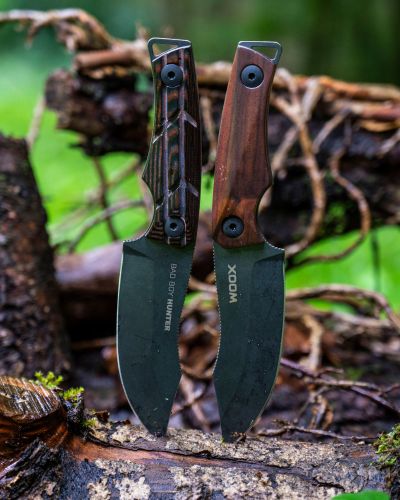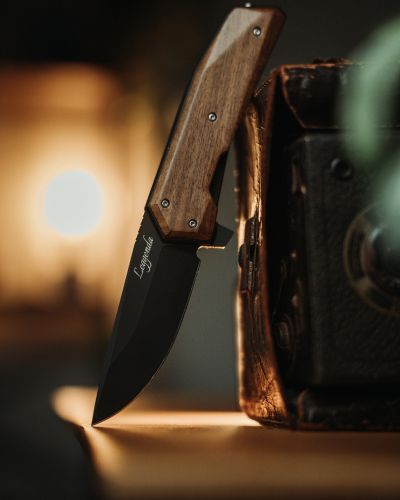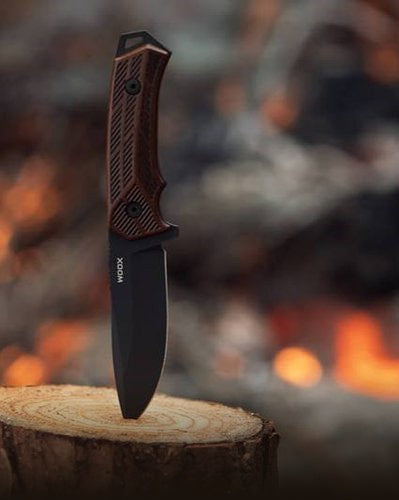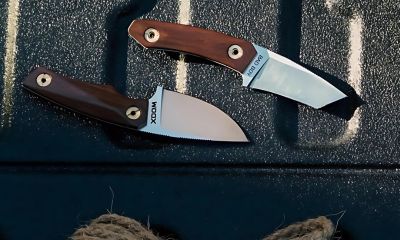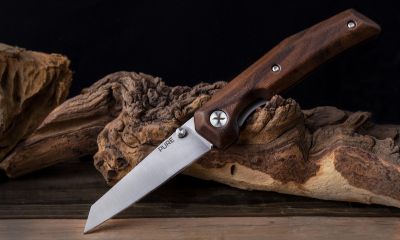
Edge of Honor: The Complete Field Guide to Knife Sharpening

In the field or at the workbench, a sharp knife is your lifeline. It slices clean wood for fire, processes game without tearing meat, and stands ready in emergencies. Sharpening isn’t a chore—it’s a ritual of respect for your tool and a skill you owe to yourself and whoever follows in your boots. Below is the no BS method that turns any blade dull to razor keen, along with the mindset to pass these traditions on.
Table of Content
Stone by Stone: Matching Grit to Purpose Angle Discipline: The Invisible GuidePressure Control: From Force to FinesseBurr Detection & RemovalThe Last Hurrah: StroppingQuick Touch Ups in the WildMaintenance Habits That MatterTroubleshooting Common PitfallsPassing Down the PracticeFinal Edge
1. Stone by Stone: Matching Grit to Purpose
Sharpening starts before you touch the blade. Pack a three stone system when you roam beyond resupply:
• Coarse (200–400 grit): Rebuilds damaged edges or restores a neglected blade. Use sparingly.
• Medium (800–1000 grit): Your daily workhorse—refines minor dullness and preps for polishing.
• Fine (3000–8000 grit): Polishes the bevel, removes burrs, and sets up a hair splitting edge.
Field Tip: For a single stone backup, choose ~1000 grit—a balanced blend of speed and finish.

2. Angle Discipline: The Invisible Guide
Consistency in angle is the bedrock of any edge. Most outdoor knives run 15°–20° per side. Train your hand by:
1. Laying the spine flat on the stone.
2. Lifting to meet the bevel.
3. Locking that angle in your mind—every pass starts there.
Repetition Drill: Ten strokes right, ten left. If you lose count or slip, reset. Precision beats speed every time.

3. Pressure Control: From Force to Finesse
Your force varies by stage:
• Reprofiling: Firm push—20–30% more than slicing pressure. Move steel, not just the burr.
• Sharpening: Moderate pressure, enough to feel grit bite but not grind.
• Polishing: Feather light strokes—think “petting a cat.” You’re refining, not reshaping.
Safety Note: Uneven pressure skews your bevel. If you hear a metallic “ping,” ease up.
4. Burr Detection & Removal
A burr—a tiny wire edge—signals you’ve thinned the bevel. After medium grit passes:
• Drag your thumb perpendicular to the edge. A consistent lip confirms progress.
• Switch sides; repeat until the burr runs full length.
• On the fine stone, remove it with five to ten light strokes per side.
No burr, no edge. No excuses.

5. The Last Hurrah: Stropping
Stropping on leather charged with compound is non negotiable. Spine first, pull blade away from the edge:
• Ten passes per side.
• Maintain your sharpening angle.
• You’ll feel a shift as micro teeth align and polish.
That “hair pop” sharpness isn’t gimmickry: it’s metal trained to slice finer than any quick fix sharpener can manage.
6. Quick Touch Ups in the Wild
Carry a ceramic rod or diamond coated stick. Before bed or after heavy use:
• Five light pulls each side at your established angle.
• Restores bevel without a full resharpen.
• Keeps the edge working through long trips.

7. Maintenance Habits That Matter
• Avoid bone and metal: They wreck edges faster than any grit can repair.
• Dry storage: Wipe blade, apply a thin coat of oil, slide into a dry sheath.
• Record in a notebook: Note date, stone grit, and observations—builds a maintenance tradition worth passing on.
8. Troubleshooting Common Pitfalls
• Uneven edge: You’re shifting angles. Return to ten count drills with a card gauge.
• Rounded bevel: Too many fine passes without medium? Cycle back.
• Slipping on stones: Add a rubber band at the handle’s end for purchase.


9. Passing Down the Practice
Sharpening skills live in shared moments—under lantern glow, beside a campfire, or at a workbench. Hand over the stone, guide their first strokes, and let them feel burrs form and vanish. When they finally shave a hair without prompting, you know the tradition is secure.
Final Edge
Knife sharpening is where respect for gear meets self reliance. Each stone, each stroke, and each strop cements an unwritten code: honor your tools, honor your craft, and honor those who walk the same path after you. Master these steps, teach them without compromise, and you’ll carry a legacy sharper than any blade.

Keep Reading
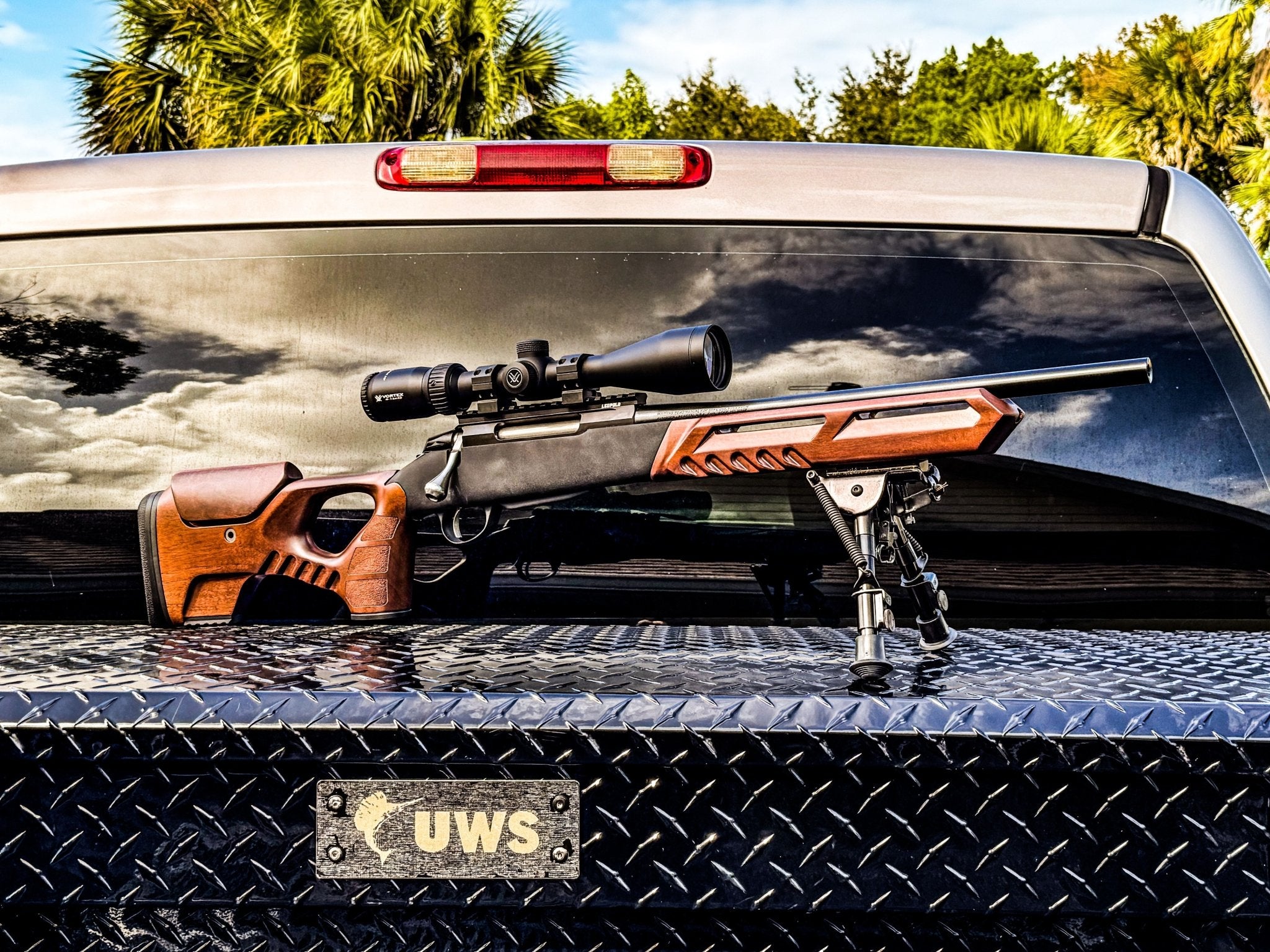
Tikka T3x Hunter 16″ with WOOX Cobra Precision Build
A purpose-driven rifle system blending craftsmanship, precision, and performance—the WOOX Cobra + Tikka T3x Hunter 16″ build is made for the modern outdoorsman.
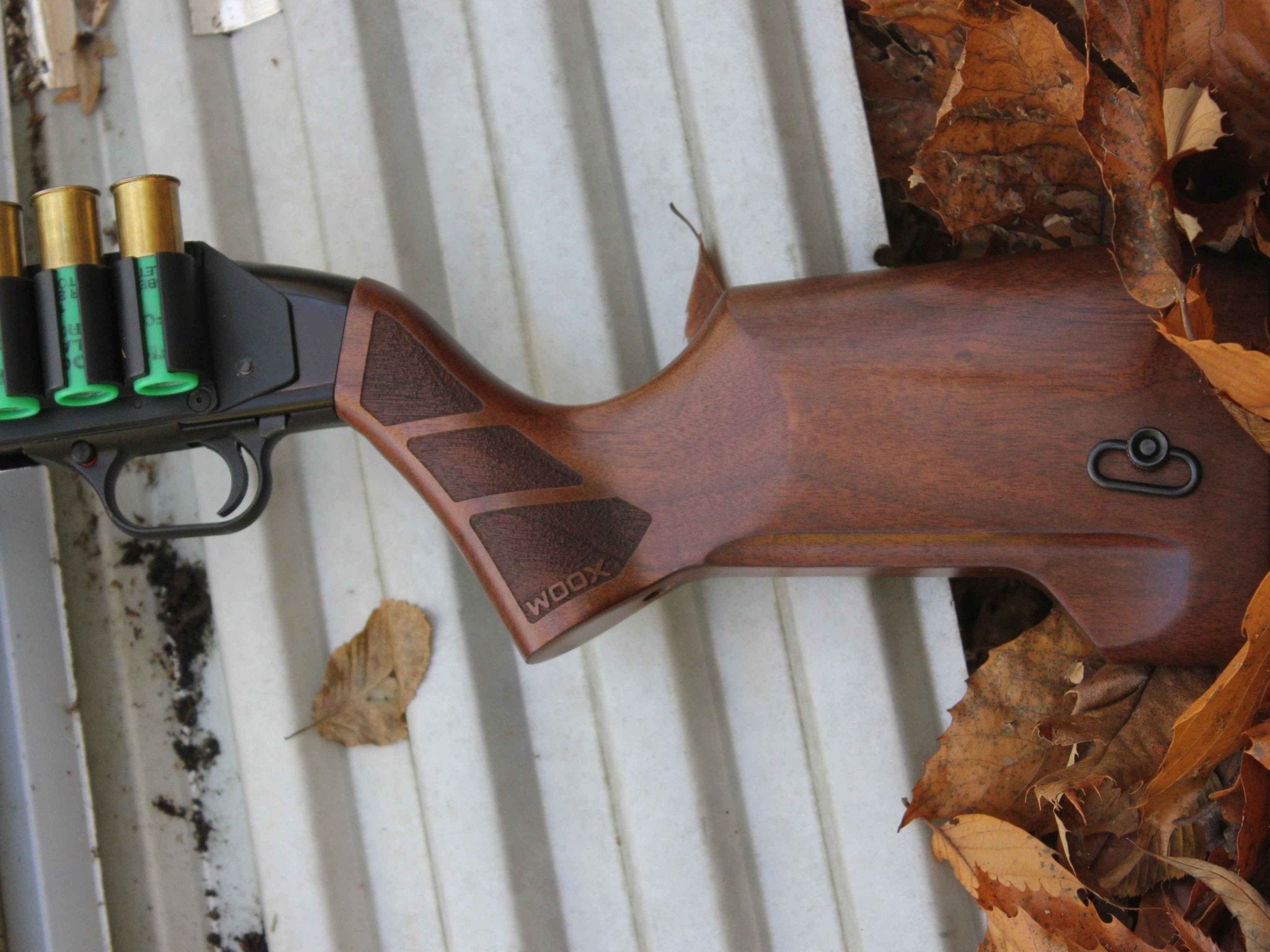
The Mossberg Maverick 88: A Working-Man’s Shotgun Raised to a Higher Calling
The Mossberg Maverick 88 evolves from rugged workhorse to heirloom-quality shotgun with Gladiatore walnut and aluminum furniture—performance and craftsmanship combined.
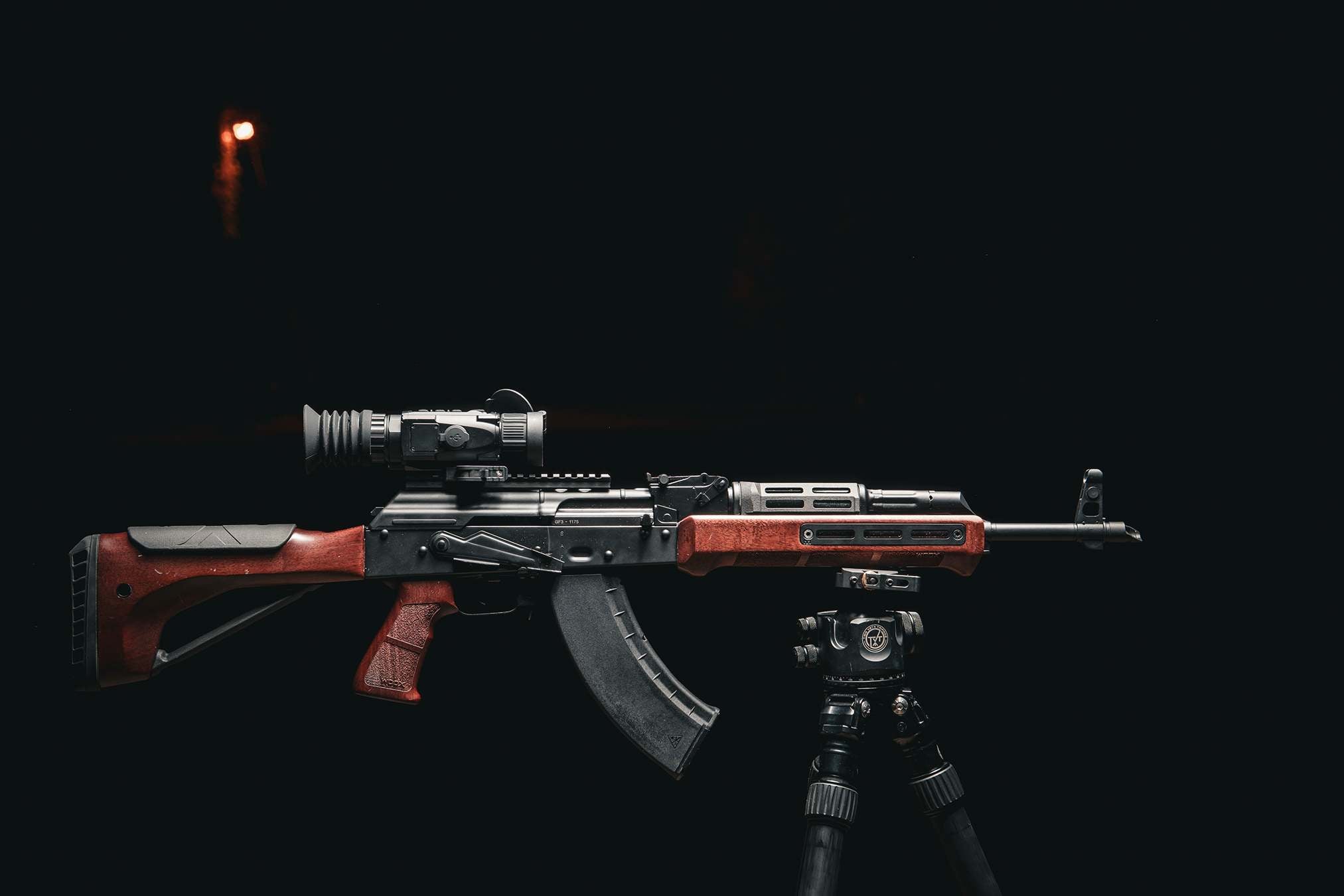
PSAK-47 GF3 & WOOX Forty Seven: Power Meets Heritage
The WOOX Forty Seven combines timeless craftsmanship and thoughtful design, creating an immersive, adventure-ready experience for those who seek the wilderness.
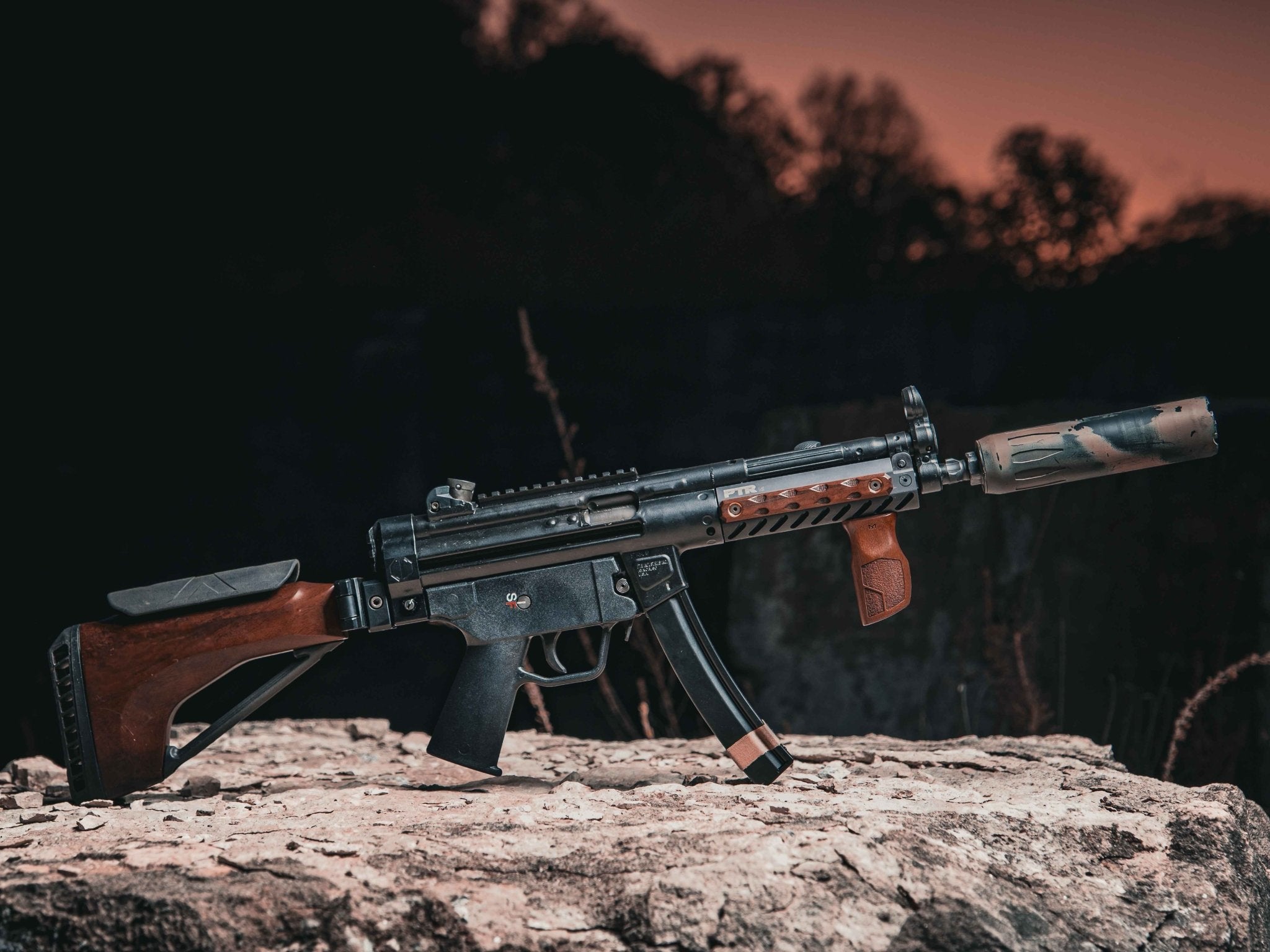
PTR 9CT: Stock, Grip & Rail Upgrades - WOOX 1913 WOODY
WOOX’s handcrafted American walnut stock, M‑LOK vertical grip and rail panels turn any rifle into a blend of classic craftsmanship and modern modular performance — perfect for hunters and shooters who value both heritage and function.



